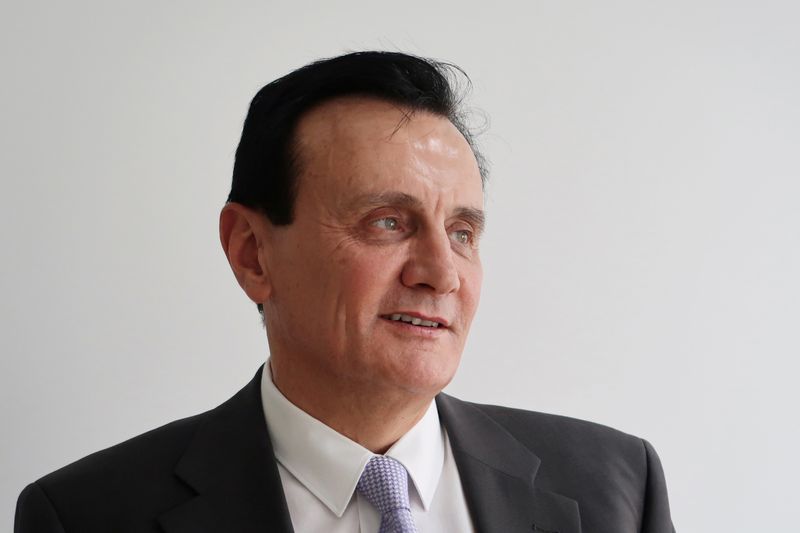(Reuters) - AstraZeneca is likely to run an additional global trial to assess the efficacy of its COVID-19 vaccine using a lower dosage, its chief executive was quoted as saying on Thursday amid questions over the results of its late-stage study.
Instead of adding the trial to an ongoing U.S. process, AstraZeneca might launch a fresh study to evaluate a lower dosage of its vaccine that performed better than a full dosage, Pascal Soriot told Bloomberg News.
"Now that we've found what looks like a better efficacy we have to validate this, so we need to do an additional study," he said, adding that the new, likely global, study could be faster because it would need fewer subjects as the efficacy was already known to be high.
The news comes as AstraZeneca faces questions about its success rate that some experts say could hinder its chances of getting speedy U.S. and EU regulatory approval.
Several scientists have raised doubts about the robustness of results released on Monday showing the experimental vaccine was 90% effective in a sub-group of trial participants who, by error initially, received a half dose followed by a full dose.
Soriot said he did not expect the additional trial to delay British and European regulatory approvals.
Asked about the Bloomberg report, an AstraZeneca spokesman said there was strong merit in continuing to investigate the half-dose/full dose regimen. Any further insights from the data would be added to those from existing trials that are being prepared for regulatory submission, he said.
Running an additional trial might not be too much of a complication for the British drugmaker in the race to develop a vaccine to help tame the pandemic, which has killed more than a million people and roiled the global economy.
Helen Fletcher, professor of immunology at the London School of Hygiene & Tropical Medicine, said another trial would not necessarily delay getting a green light as efficacy in the higher dose regime still met the World Health Organization's target. It was not unusual to run new studies on approved vaccines, she said.
The vaccine is one of three that could get approved before the end the year. This month, Pfizer (NYSE:PFE) and Moderna reported that their vaccines were about 95% effective in preventing illness, setting the bar sky-high.
Even so, the AstraZeneca shot developed with Oxford University is cheaper to make, easier to distribute and faster to scale up than its rivals.
Britain on Friday asked its medicine regulator to assess if the vaccine candidate met rigorous safety standards with a view for temporary supply, a step towards beginning a roll-out of the vaccine before the end of the year.
AstraZeneca expects 4 million doses to be available in Britain by the end of next month.
OPTIMISM
A peer-reviewed analysis of data from the new trial will be published in a medical journal in coming weeks.
The European Medicines Agency did not immediately respond to requests for comment.
AstraZeneca told Reuters earlier on Thursday that administering of the half dose had been reviewed and approved by independent data safety monitors and the British regulator, adding that the regulator publicly confirmed there was "no concern".
Clearance from the U.S. Food and Drug Administration (FDA) may take longer, though, because the agency is unlikely to approve the vaccine based on studies carried out elsewhere, especially given the questions over the results, Soriot said.
AstraZeneca research chief Mene Pangalos told Reuters on Monday the firm would start discussions with the FDA to change the design of its trial to add the more-effective dosage regime.
Authorisation in some countries is still expected before the end of the year.
Astrazeneca (LON:AZN) has struck deals to supply the vaccines in several countries, including 120 million doses to Japan and 85 million doses to Australia.
Australian Prime Minister Scott Morrison, talking to media, expressed confidence about the vaccine, which is being manufactured by the country's biomedical giant CSL Ltd.
The Serum Institute of India is conducting trials of the vaccine there.

"Even the lowest efficacy results are at 60-70%, making it a viable vaccine against the virus," the institute said in a statement, adding that the trials were running smoothly.